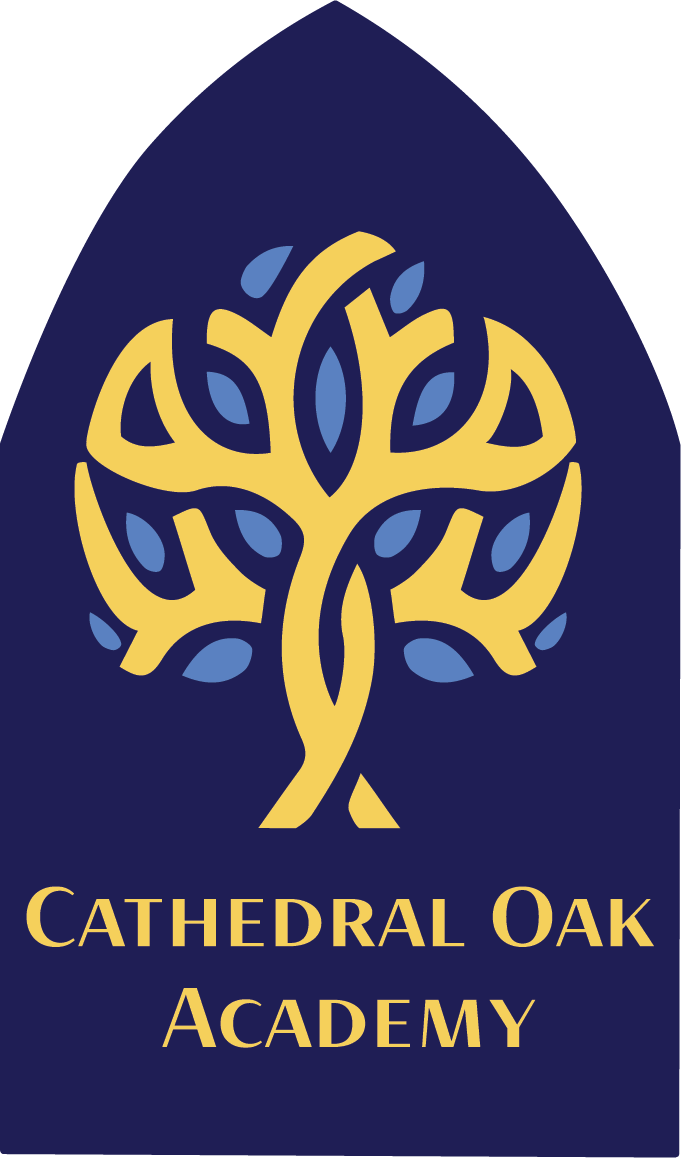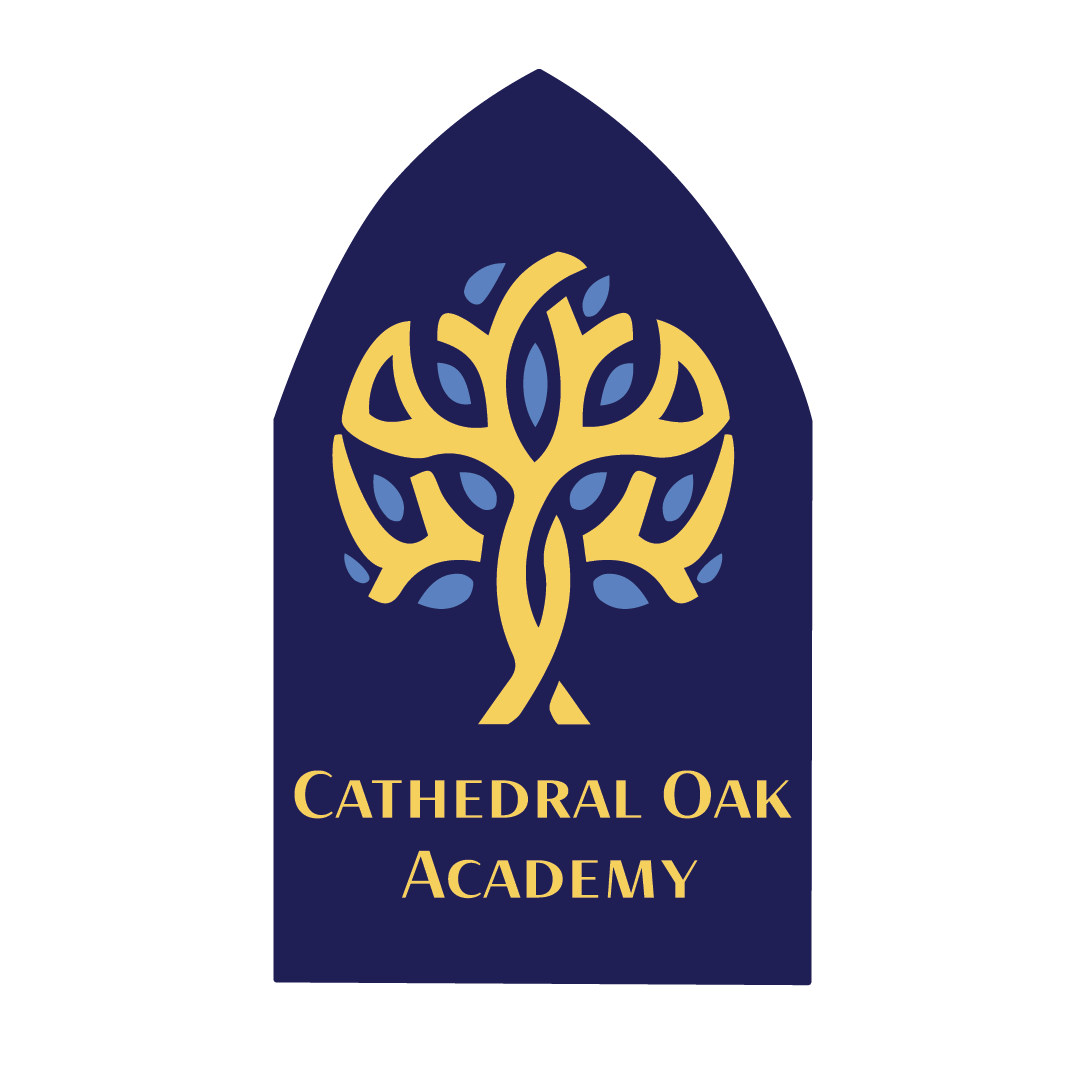The Classical Model of Education
A Classical Overview
The Great Tradition
Cathedral Oak Academy is committed to educating using a classical approach. We believe that we have a great heritage in the educational tradition of the West, extending back to the ancient civilizations of Greece and Rome. As we trace this heritage, in its best moments, education has been a commitment to the cultivation of wisdom and virtue in young hearts and minds. Education has been a means of grappling with the highest truths, coming to terms with the natural order of our universe, and discovering what it means to be human. In order to pursue these great ends, educators have used the seven liberal arts (grammar/Latin, logic, rhetoric, music, arithmetic, geometry, and astronomy) as a means. In essence, rigorous, liberal arts-oriented study has historically been the core makeup of a classical education. Many of the men and women we admire and whose life and work have made the greatest impact on western civilization were educated in this manner.
Unfortunately, this great tradition has been abandoned in the modern era. It has been replaced in the last century with a progressive philosophy of education. The ends of wisdom and virtue no longer reign supreme because there is no cultural agreement as to what a wise and virtuous life is. At best, test-taking skills, college prep, and vocational training are ultimate ends in the progressive model. This has made for a much more mechanical and systematic approach to education that cares little about what it means to be human and much about what it means to be an effective worker in the current system of American culture. At Cathedral Oak Academy, we certainly want our students to be well-equipped for the modern workforce, but this is not our ultimate end.
Cathedral Oak Academy takes a classical and Christ-centered approach to education because we care about worship. We want our students to understand that we study, experiment, think, discuss, write, debate, and create because we believe this is what it means to be created in the image of God. We study math for example, not ultimately to become an engineer, but because understanding math helps us understand something about the character of God. Classical education is an act of worship at Cathedral Oak Academy.
The Great Conversation
At Cathedral Oak Academy education is a Great Books-oriented education. The western tradition, like no other, contains a long chain of great minds putting their thoughts down on paper, often referred to as the “great conversation.” The process of education must involve being caught up on the “great conversation” that has been going on for centuries. We believe that students must become acquainted with “the best that has been said and thought” before meaningfully engaging in the literature of today. Our goal is that they would become familiar enough with the Great Conversation that they might become wise and eloquent contributors to this conversation.
Cathedral Oak Academy’s Approach to Academics
-

Classical Content | Truth, Beauty & Goodness
Classical education strives to only use the truly great aspects of our culture as its curriculum. Now that we know we want our children to memorize grammar, what constitutes grammar? What is the substance of the curriculum? These questions are especially relevant when one considers our fast-paced, information-laden society.
There is so much information available; how do we sift through it all? Philippians 4:8 supplies us with a key principle that must be considered. It instructs us to think only on those things which are true, honest, just, pure, lovely (or beautiful), of good report, and praiseworthy.
A classical education, therefore, recognizes that these virtues must characterize its curriculum. Given the Church’s overwhelming influence over the development of Western civilization, we have a rich heritage from which to choose. We have a wonderful tradition of literature, art, philosophy, and science that is true, honest, just, pure, lovely, of good report, and praiseworthy. Cathedral Oak will strive to immerse our students in content that is true, good, and beautiful.
The Great Conversation | At Cathedral Oak Academy, education is a Great Books-oriented education. The western tradition, like no other, contains a long chain of great minds putting their thoughts down on paper, often referred to as the “great conversation.” The process of education must involve being caught up on the “great conversation” that has been going on for centuries. We believe that students must become acquainted with “the best that has been said and thought” before meaningfully engaging in the literature of today. Our goal is that they would become familiar enough with the Great Conversation that they might become wise and eloquent contributors to this conversation.
Fine Arts | Cathedral Oak Academy will have options for Fine Arts such as music, visual arts, theatre, and choir. Specific details will be available soon.
Athletics | Cathedral Oak Academy plans to offer a variety of athletic options based on interest. Specific details will be available soon.
Co-Curricular Activities | Cathedral Oak Academy plans to offer students a wide range of activities off-campus which complement their on-campus studies. We describe these activities as “co-curricular.” These activities are planned and coordinated by families and will be advertised by Cathedral Oak Academy. Examples of these activities include Chess club, group and individualized tutoring, American Heritage Girls, community service, piano, guitar, or violin.
-
Classical Method | The Trivium
The Trivium (Latin for “three ways”) applies a learning process where students gain knowledge first, then understanding and, finally, wisdom. This three-step process is evident in the unfolding of the classical Trivium, which divides learning into three stages: grammar, dialectic (or logic), and rhetoric. Grammar, like knowledge, encompasses the building blocks of information that must be learned or memorized for any given subject-the ABCs, if you will. Dialectic (or logic), like understanding, is the logical relationship between the information blocks mastered in Grammar. Then Rhetoric, like wisdom, is the goal. It is learning to apply Grammar and Dialectic in a beautiful, eloquent, and truthful fashion.
We follow these three steps—grammar, dialectic (called ‘logic’ at Cathedral Oak Academy), and rhetoric—when learning any new subject. Although these three tools of learning can be applied throughout a lifetime, classical education aligns these steps with the natural development stages of children.
We believe the goal of education is the attainment of wisdom, not simply to prepare students for the workforce. We do understand, however, that a truly wise person will make a better worker. Just as the book of Proverbs states, wisdom is rooted in the fear of the Lord. From this beginning a Christian Classical education is built.
In their early years, children thrive on memorizing facts—a skill that often becomes drudgery to adults. Classical students in the Grammar Phase can easily, and usually with great pride, memorize hundreds of facts, everything from grammatical rules and math facts to bones of the body. Even at this stage, however, the goal of rhetoric remains in view; thus, we also encourage students to practice speaking often in front of their classmates and to work on quality penmanship, among other things.
In their “middle school” years, most students revel in questioning everything. They love to argue; so, we challenge them to argue well through learning formal logic. In the Logic Phase we encourage students to question and prove and discover how their grammatical knowledge works together.
Finally, students enter the Rhetoric Phase (their high school years), eager for self-expression. Classical education capitalizes on this innate desire by teaching them what is beautiful and true in all subjects. They also study formal rhetoric and learn to communicate with grace and polish.
Integration | Classical education strives to integrate academic subjects. Life is not compartmentalized so neither should education be. Academic disciplines are a means to understand and enjoy this life God has given us to live. Life is not about understanding school subjects. In a very real sense, math has everything to do with science, history has everything to do with literature, and the Bible has everything to do with them all. Just studying math for math’s sake takes all of the joy out of it. Classical education seeks for the classroom to be a microcosm of this integrated life we live. Integration helps our studies come alive. Classical educators should seek to integrate both formally and informally. The Classical curriculum has integration built-in to daily lessons. Integration should also be informal and off-the-cuff, constantly referring to other subjects in the midst of the one being studied. Lessons are interrelated and assignments can span more than one subject. For example, as students learn about ancient Egypt, aspects of that culture would relate to a classroom’s study of language, history, and science.
-
Classical Languages | Latin
Why Study Latin? | At Cathedral Oak Academy, students will begin the study of Latin beginning in 3rd grade and will continue into 7th grade. Beginning in 8th grade, parents and students can choose to continue the study of Latin or choose another available language pathway.
Our reasons for Latin study stem from the following:
1. Knowledge of classical languages increases English vocabulary. About half of all English vocabulary comes from Latin and another 20 percent from Greek (~70% of all English vocabulary!). These words tend to be the difficult, polysyllabic ones----“SAT words.”
2. Latin aids in the understanding of English grammar. Studying a highly inflected language----that is, one that marks grammatical changes with a fully developed system of case endings----gives students a better grasp of English grammar. In fact, generations of teachers have observed that Latin teaches English better than English by requiring students to accurately identify the part of speech for every word!
3. Latin is key to modern languages. Knowing Latin makes it much easier to learn the grammar and vocabulary of the modern Romance languages (e.g. Spanish, French, Italian, Portuguese, Romanian), since they take about 80 percent of their vocabulary from Latin. Both Latin and Greek also aid in learning other case-based languages, such as German, Russian, and the Slavo-Baltic languages.
4. Latin teaches logical thinking. Future computer scientists and engineers benefit from experiencing Latin’s patterns, precision, and compactness.
5. Latin students excel on standardized tests which are required by competitive colleges. As a result of increased vocabulary, grammar proficiency, and reasoning skills, students of Latin consistently outperform their peers—including those who have studied modern languages.
Using the SAT in 2016 as an example, Latin students scored 67 points higher than average on Critical Reading and 60 points higher than average on Writing. These scores for Latin students are higher than for any other type of language student. Latin students also scored 51 points higher than average on Mathematics.
Source: The College Board, 2016 College-Bound Seniors: Total Group Profile Report (Tables 10 & 16).
Mean scores for all test-takers are found in Table 10: Student Background Information and Characteristics Mean scores for Latin students are found in Table 16: Foreign and Classical Languages.
6. Several careers directly benefit from a knowledge of classical languages. The nomenclature and technical vocabularies of medicine, law, and the sciences rest on the foundation of Latin and Greek. Classical languages are a required subject for some higher degrees and for some ministry positions.
7. Latin enables students to understand and participate in the Great Conversation, which is the ongoing process of writers and thinkers referencing, building on, and refining the work of their predecessors.
More about the Classical Method and the Trivium
-
The following chart describes the focus and activities in each phase of the Trivium.

-
The following table describes illustrative topics and activities in each phase of the Trivium.





